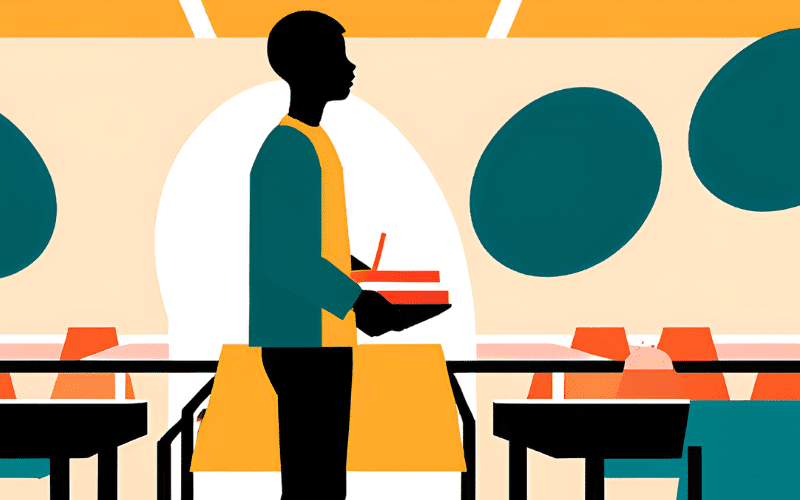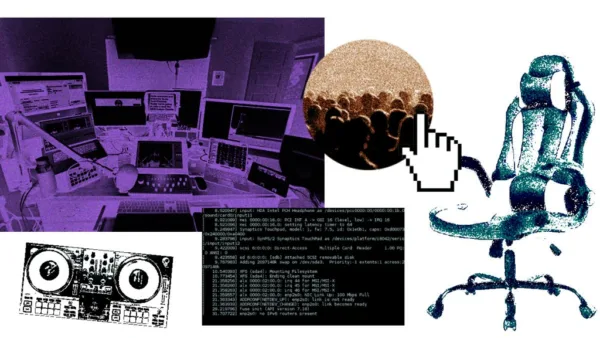Residents at the Novotel shelter-hotel have experienced alleged mistreatment, including sexual assault, unsanitary living conditions, and unjust discharges.
Located on 45 The Esplanade, the City of Toronto temporarily leased and opened the building in February 2021 and extended its lease to April 2022 in November 2021. However, on October 11 residents received a notice stating the shelter-hotel would be decommissioned before the end of 2022 and residents would be relocated by December 31.
The city is looking into extending most shelter hotel leases to April 2023, yet this has not been confirmed. Homes First Society, a support service for housing sites, operates Novotel’s services alongside a private security firm called STAR Security.
Internally, residents have faced staff's lack of intervention training, including basic first aid training, bullying and mocking by staff, a heavy police presence and consistent mistreatment of basic necessities such as food and medication.

For resident Danielle McQuade, safety inside the shelter hasn’t been a priority for the year-and-a-half that she has lived there. McQuade spoke of being sexually assaulted by a supervisor employed by the Homes First Society.
“I woke up [in my bedroom] and [the supervisor] was rubbing my leg, telling me to wake up. And I’m like ‘why are you here,’” said McQuade. “He’s taking money out of his wallet and counting it like he’s trying to pursue something.”
McQuade yelled at the supervisor and told him to leave, which he did. Later she found out that another woman living at Novotel had reported the same staff member for a similar incident. According to McQuade, the supervisor no longer works there.
Earlier this year McQuade was punched in the mouth by another resident, causing her bottom teeth to fall out. She said the resident is still living in the shelter. She also spoke about having her belongings stolen from her room.
“I went to report the problem to the [Novotel staff], but they said to call the police and that they couldn’t do anything about it.”
McQuade said that a resident had gotten ahold of one of the staff’s swipe keys that allows access to multiple rooms, and copied and distributed it. Access to other residents' keys is a continuing issue that residents living in the shelter-hotel face.

Dredz, another resident, described an ongoing problem with room security. “You have other people who are not residents of a specific room who ask for a key to that room and get it,” said Dredz.
Dredz and several other residents tried to build community within the shelter by organizing activity set-ups in the reception area. Still, Novotel staff said they were not allowed to gather there.
Discharges have also been a major issue at the Novotel, which has left many houseless once again.
Many residents of the Novotel shelter-hotel say they have been discharged unfairly by the staff of Homes First Society. Residents are given a two or three-day ban, where they are forced to leave the shelter and find a new place to stay. Often this means they must sleep on the street or in a park.
The Novotel will hold their belongings for up to 72 hours. After that residents must take their belongings out of the shelter-hotel. Some residents are given a 14-day ban with the expectation that they will return, but they are still forced to take their belongings out of the shelter for this period once their 72 hours have expired.
On September 8, an Indigenous couple and residents, Jamie and Louise, experienced what they deemed as an unfair discharge. According to Jamie, the couple was discharged after an alleged altercation where an individual walked into their room and claimed Jamie had stolen his phone. After the incident occurred, Homes First staff told Jamie and Louise they had to vacate their room and were given a three-day ban from the site.
Neither of them was able to retrieve any of their belongings before they were kicked out.
Less than 24 hours later, both residents were near the rear of the building when they noticed Streets to Homes and shelter staff throwing their belongings into a dumpster, including their Indigenous medicines. Both Jaime and Louise intervened and showed the staff their paperwork. A staff member then assaulted Louise, which can be seen in a video that another resident took of the conflict.
According to their discharge protocol, the Homes First staff is obligated to keep residents' belongings for three days. Their items were thrown out before this date.
In a statement to The Hoser, Homes First Society said that they could not comment on any allegations for privacy reasons. “For any additional security issues such as lost keys, discharges and appeals, all residents are encouraged to connect with the supervisor on-site,” they wrote.
“Although we cannot discuss any details with respect to any privacy issues and proprietary knowledge, all complaints are taken seriously and are fully investigated.”
Both Jamie and Louise have been residents of Novotel since May of this year. After the three-day ban was lifted, Jamie and Louise returned to Novotel to appeal the original decision to ban them. They waited for four hours outside alongside other residents. Rachelle Friesen, a community organizer and advocate, assisted Jamie and Louise in their referral and appeal process. In the end they were hit with a 14-day ban.
The site manager, Lacy Kerr, stated on their discharge service restriction forms that both residents were a risk to others without evidence.
“When someone gets discharged, they’re supposed to receive a [discharge appeal paper]…but sometimes what will happen is they don’t give any paperwork, they just kick people out,” says Friesen. “[The resident] doesn’t know what’s going on, and folks have to go back and ask [for the paperwork], which has sometimes been a fight.”
According to the city, in August alone, the average turnover for calls to Central Intake resulting in referrals to a shelter space is 17.5 people daily, while approximately 138 people were unmatched to shelters daily. During this month, the service averaged 626 calls daily, with only 2.7% getting shelter through these calls.
Toronto Shelter Standards also states that shelters must provide a “board-approved policy and management-approved procedures for bedded program service restrictions, including an appeals process.” Further, they must provide a copy of the policy and procedures to clients upon their request.
Dredz, who witnessed the incident, was previously discharged for allegedly being involved in “prohibited activity.” He stated that the discharge appeal process has become abysmal due to the change in site manager and upper staff.
According to Dredz, they were discharging residents on a daily basis. “They won’t do anything unless you start putting pen to paper… you’d have to wait for someone to give you the mercy of getting those papers.”
Most of these incidents can be categorized as ‘unplanned discharges’ according to Toronto’s Shelter Standards. This type of discharge occurs when “service restrictions from the shelters’ bedded program” are put into place.
According to Friesen, the three pages that residents should receive during their appeal process are occasionally withheld. Some receive one, while others have to fight and wait for the complete paperwork.

Jamie and Louise aren’t the only residents who have faced discharges that came with mistreatment by staff. Resident Jen, who had relocated to Cherry Beach after her discharge, is banned from the site for 30 days after an incident in her room on September 19.
“They came in to do an environmental scan… I told them I’m in the shower, but I watched them just in case,” said Jen. “One starts pointing at [my personal documents] and the other one just goes for [the documents],” Jen continued as she described staff going through her personal documents without her consent.
Environmental checks are done to assess if the smoke detectors and other aspects of the room are working; they are separate from wellness checks, which focus on the residents themselves.
According to Jen, after she confronted the two staff members in her room they proceeded to trap her in the bathroom and held the door shut.
“I’m pounding on the walls and that gets security, and then [the staff member] lets me go,” said Jen. “I told them to get out of my room, you can see the light is green and there’s no fire, get out.”
The staff didn’t leave Jen’s room to let her get dressed alone. Jen said security arrived shortly after and refused to leave and jammed their foot in the bedroom door, which prevented her from leaving. Jen said the staff and security were mocking her throughout the incident.
“They told me ‘well maybe you need a break from the program,’” said Jen. “I [asked] for a complaint form and where their supervisor was.” According to Jen, there were approximately six to eight staff members including security at her door.
“I was shaking.”
Jen said later that day a staff member told her that this incident wouldn’t be put on her record. But the next day security and staff told Jen she had 20 minutes to leave the Novotel.
The shelter said that Jen had been discharged because she had uttered: “death threats, attempted to abuse staff and closed the door on a staff member’s foot.” Jen was told by staff that the incident was on her file and that her discharge papers were not written up during the eviction.
Both Jen and Dredz spoke about how the exaggerated reasonings on discharge papers can affect an unhoused person's eligibility to access more shelters.
“Regardless of right or wrong, you can still be outside for no reason,” said Dredz. “It follows you forever.”
With the relocation set to be complete by the end of the year, the city anticipates more than 400 new affordable homes with access to support services will be available during the winter season. “These homes will be prioritized for people experiencing homelessness who are staying in emergency shelters or living outdoors,” the city stated in an Oct. 11 news release.
Residents The Hoser spoke to shared the experience of their rights, safety and access to basic necessities being mishandled. Jen said she wasn’t sure what the staff were trying to accomplish by belittling her and trapping her in a bathroom.
“It’s really fucked up and I don’t think the staff [at Novotel] really recognize that’s what it is,” said Jen. “A lot of them don’t realize they’re a part of the system of oppression.”















